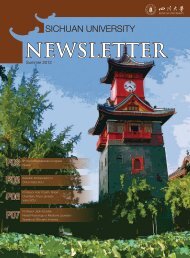Reflexive inquiry in organizational research: Questions and ...
Reflexive inquiry in organizational research: Questions and ...
Reflexive inquiry in organizational research: Questions and ...
Create successful ePaper yourself
Turn your PDF publications into a flip-book with our unique Google optimized e-Paper software.
986<br />
Human Relations 56(8)<br />
by not recogniz<strong>in</strong>g my own situatedness <strong>and</strong> fallibility, I fall prey to the very<br />
issues that reflexivity eschews – the objectivity of reality <strong>and</strong> privileg<strong>in</strong>g of<br />
particular forms of knowledge.<br />
One of the difficulties of reflexive work is that it is always open to criticism<br />
– I’m underm<strong>in</strong><strong>in</strong>g my own position by privileg<strong>in</strong>g a particular (reflexive)<br />
ontology <strong>and</strong> epistemology – I’m privileg<strong>in</strong>g myself if I expose my own<br />
biases – I can deconstruct a text from a meta-reflexive stance which privileges<br />
both an epistemology <strong>and</strong> myself as I step back from the process of<br />
construction . . . so how reflexive can that be Perhaps the danger (i.e. talk<strong>in</strong>g<br />
about reflexivity while be<strong>in</strong>g unreflexive) lies <strong>in</strong> NOT recogniz<strong>in</strong>g the situatedness<br />
of our position <strong>and</strong> that it is just one amongst many<br />
Radical-reflexivity reveals these irreconcilable issues, highlights the<br />
tentativeness of our theories <strong>and</strong> explanations, <strong>and</strong> surfaces our fallibility as<br />
<strong>research</strong>ers. In do<strong>in</strong>g so, we can reveal any ‘forgotten choices, expose hidden<br />
alternatives, lay bare epistemological limits <strong>and</strong> empower voices which have<br />
been subjugated by objective discourse’ (Lynch, 2000: 36).<br />
Approaches: Constructionist <strong>and</strong> deconstructionist<br />
<strong>Reflexive</strong> approaches to organization theory have been <strong>in</strong>fluenced by work<br />
<strong>in</strong> two broad fields: cultural anthropology <strong>and</strong> sociology, <strong>and</strong> more recently,<br />
postmodernism <strong>and</strong> poststructuralism. Scholars with<strong>in</strong> these discipl<strong>in</strong>es<br />
argue that we should not accept our accounts of the world at face value,<br />
because social activity is not pre-structured or rule-driven but constituted <strong>in</strong><br />
<strong>in</strong>teraction <strong>and</strong>/or language <strong>and</strong> therefore difficult to capture <strong>and</strong> categorize.<br />
I suggest that these two fields of <strong>in</strong>fluence have led to reflexive <strong>organizational</strong><br />
texts be<strong>in</strong>g explicitly or implicitly grounded <strong>in</strong> one of two root metaphors:<br />
otherness or betweeness. Texts grounded <strong>in</strong> otherness build on postmodern<br />
<strong>and</strong> poststructuralist commitments by <strong>in</strong>corporat<strong>in</strong>g deconstructionist or<br />
contradiction-centered approaches (Hatch, 1997; Steier, 1991). This metareflexive<br />
approach addresses the representational crisis head on, by us<strong>in</strong>g the<br />
oppositional logic of otherness to overturn any notions of our ability to<br />
produce truthful, authoritative accounts. Texts grounded <strong>in</strong> betweeness draw<br />
on ethnographic work, specifically constructionist approaches, propos<strong>in</strong>g<br />
that social realities are constructed between us <strong>in</strong> our conversations (Shotter,<br />
1993; Watson, 1994). Each metaphor has very different implications for<br />
<strong>research</strong><strong>in</strong>g <strong>organizational</strong> life. I offer the metaphors as my own ways of<br />
order<strong>in</strong>g that are themselves open to reflexive <strong>in</strong>terrogation by readers.<br />
Otherness draws on postmodern <strong>and</strong> poststructuralist ideas that<br />
language speaks through subjects to create a fictive, relative reality <strong>in</strong> which<br />
mean<strong>in</strong>g both:


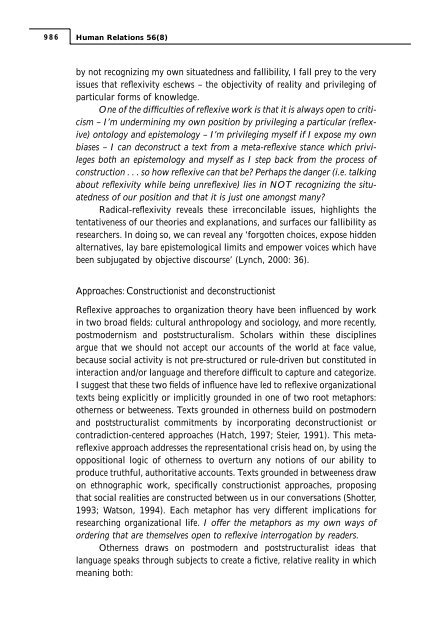

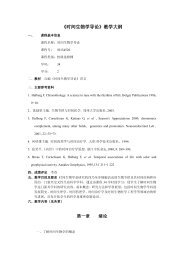
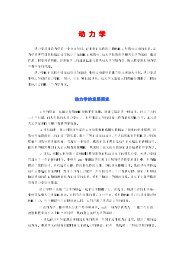
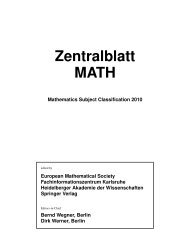
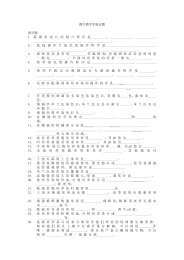
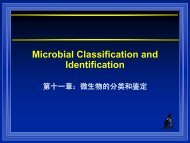




![第10 ç« æ¢ç弯æ²åºåMPa 30 MPa 36 kN/m 5.4][ = q = ][q](https://img.yumpu.com/29939822/1/184x260/c10-c-aeca-1-4-aeaampa-30-mpa-36-kn-m-54-q-q.jpg?quality=85)


